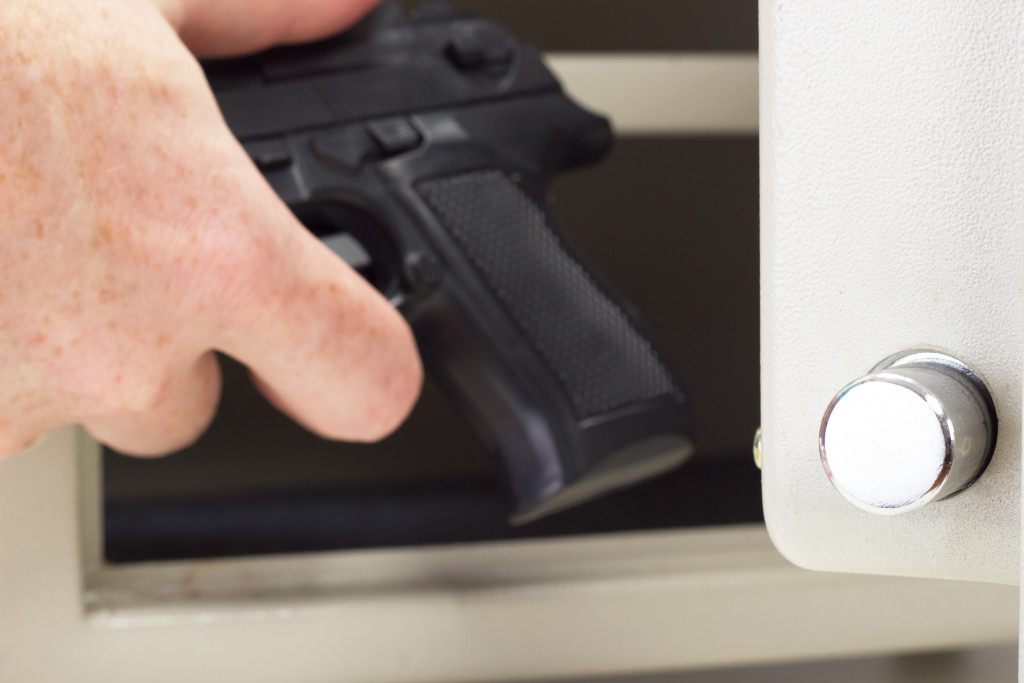• Americans own approximately 300 million firearms, including legal and illegal ones.
• Many guns in circulation come from unregulated private sales, thus allowing anyone to purchase a firearm without any paperwork or background checks.
• Businesses should create a gun-free zone policy, train their employees on gun safety protocols, implement security protocols, and conduct background checks.
• Gun ownership is a sensitive issue in the United States, so businesses must be aware of their local laws regarding firearms and implement gun safety practices that comply with existing laws.
• By doing so, employers can help ensure that their employees are safe and that their business operates within the law.
Gun ownership is a hot-button issue in the United States. All sides of the debate have strong opinions, and with so much information, it cannot be difficult to get an accurate picture of what’s happening.
As a businessman, you need to know more about these gun laws, especially in a state with restrictive gun laws. Here’s what you need to know about gun ownership in the country and how your business can help keep your workplace safer while these numbers increase.

The Number of Guns Owned by Americans
According to a recent survey conducted by the Pew Research Center, three in ten adults in the United States own one or more guns. This means that American citizens own approximately 300 million firearms. That’s about one gun for every man, woman, and child living in the U.S.! However, it is essential to note that this figure includes both legal and illegal firearms, so it may not be entirely accurate.
Where Are These Guns Coming From?
Many guns in circulation come from unregulated private sales (also known as the “gun show loophole”). These sales involve no background checks or paperwork, meaning anyone can purchase a firearm without proving they are legally authorized.
In addition, many states have relaxed their laws regarding concealed carry permits, allowing individuals to carry concealed weapons without needing access or even undergoing any safety training. This has led to an increase in private gun ownership across the country.
Gun Safety Regulations in the Workplace
It’s crucial to implement some gun safety regulations in the workplace. The first is by having a gun-free zone.
Create a Gun-Free Zone Policy
The first step in protecting your employees is implementing a no-gun policy. This means that you have established your workplace as a gun-free zone, which means that no firearms or weapons of any kind are allowed on the premises.
Employers must ensure this policy is clearly outlined and communicated to all current and prospective employees. Additionally, it should be noted that public places such as parking lots are excluded from this policy. If an employee has a concealed carry permit, they may bring their weapon into these areas but not onto the premises of the business itself.

Train Your Employees
In addition to having written policies, employers should also ensure that their employees are well-trained in gun safety procedures. This includes teaching them what to do if they see someone with a firearm in the workplace and how to secure any firearms stored on-site properly.
It is also vital for employers to discuss proper storage practices with employees who do bring firearms onto the property (i.e., keeping them locked away when not in use).
Security Protocols
Employers should also consider implementing a safety protocol for any employee carrying a weapon on their person into the workplace. This should include special training and instructions on handling the firearm safely in an emergency. In addition, it’s good to remind them to have their firearm stored in a robust gun holster if they want to keep it concealed and secure. This can prevent misfires and ensure that only authorized personnel can access firearms. Moreover, it can protect their firearms from unwanted access.
Conduct Background Checks
Finally, employers should consider conducting background checks on all employees handling firearms or working with customers who might be carrying guns (e.g., security guards). This can help reduce the risk of accidents or other firearms-related incidents and give employers peace of mind knowing that their staff is well-qualified for the job at hand.
These background checks are also a good way to ensure that employees who choose to bring firearms on-site are legally allowed to do so.
Gun ownership is a sensitive issue in the United States. Therefore, employers must be aware of their local and state laws regarding firearms and implement gun safety practices in their workplace. By doing so, employers can help ensure that their employees are safe and that their business operates within the law.
